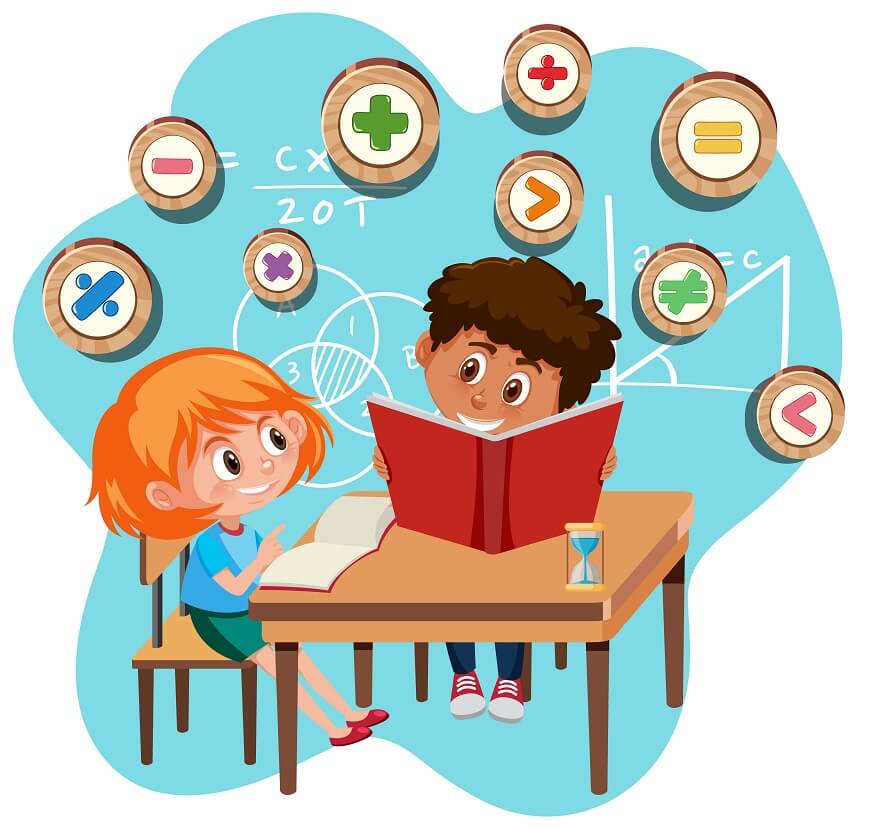Memorisation is an integral part of the academic routine for students. Those students who can memorise well typically face fewer difficulties while facing direct questions during exams. Even so, as much as possible students must try to internalise, rather than memorise. Internalising concepts means gaining an in-depth understanding of the concepts. Once you gain that in-depth understanding, you won’t need to memorise everything. With memorising, there is always the fear of forgetting. However, with internalising, there is no such fear. However, to say that students don’t need to memorise anything would be grossly incorrect. There are certain things, facts, and formulas which need some extent of memorisation. For example, the periodic table in chemistry, key dates in history, full forms of various abbreviations, key mathematical formulas, etc need memorisation.
Most students struggle to memorise. This article presents certain memorisation and memory improvement techniques which can be helpful for students.
Use Acronyms and Mnemonics
Acronyms are an excellent memorisation technique for students. Don’t we all still remember acronyms such as:
– BODMAS (sequence of mathematical operations – Bracket, Of, Division, Multiplication, Addition, Subtraction)
– VIBGYOR (the colours of the rainbow – Violet, Indigo, Green, Yellow, Orange, Red)
Students can smartly devise their acronyms to memorise concepts that they are finding difficult to retain.
Find a suitable time
We all have certain times of the day when our mind’s grasping and memorising powers are at their peak. Most students find early morning conducive to memory-related study work. Early mornings are devoid of much noise and distraction and your mind and body are fresh after a good night’s sleep. Keep all tasks relating to memorisation for that part of the day.
Bite as much as you can chew
Our brains have their capacities. They can only take in so much information at a time. So, bite only as much as you can chew. Do not overdo the memorisation task in one sitting. When you see your productivity going down, stop, take a break, and do something else to refresh and recharge your mind.
Create a Song
It is an interesting phenomenon that we forget the formulas or definitions we studied a month ago but still remember our favourite song we learnt years ago during our childhood. Songs, hymns, or rhymes have an amazing characteristic of sticking to our memory because of their sequential rhythmic pattern. Students can leverage this feature to create a rhythmic composition out of a difficult piece of information they wish to memorise. This is an amazing memorisation technique and can work on long definitions, sequences (such as periodic tables), etc.
Flash Cards
Make small cards, of the size of a typical visiting card and write the stuff you want to memorise. On one side of the card, write the question and on the other side, write the answer. Carry those cards in your pocket throughout the day. Whenever you get a chance, randomly select a card, look at the side that has the question and try and recall the answer. Then flip the card and check if you got it right. Do it multiple times, and you’ll see you get more right answers than wrong. Once you get consecutive right answers on a particular card, remove it from the pack of cards you regularly carry.
Write it
One of the best ways to memorise information is not by reading and re-reading, but by writing. It has been scientifically proven that retention is higher when we write things ourselves on a piece of paper. Write a definition you want to memorise repeatedly on a piece of paper. In some time, you’ll observe that you don’t need to refer to the book while writing the definition. Writing is a very useful memorisation technique for students. It also builds muscle memory which helps while reproducing the same definition during exams.
Speak It out loud
Another effective memorisation technique is to read out loud whatever you are trying to memorise. When you speak it out loud, you also hear your voice. This dual sense invocation helps in memorisation. Read out loud again and again, first by reading off the book or your notes, and then gradually start reducing the time you look at the book. In some time, you’ll not need to look at all and you’ll be able to read it all by yourself.
Make it visual
As per studies, we retain more of what we see than of what we read or hear. Try to convert your information into visual forms. These could be in the form of diagrams, charts, pictures, or sketches. As you increase the visual element in your memorisation routine, you will see your retention improve drastically. Another immersive technique of visualisation is by using spatial elements. Individuals who possess photographic memory use this very technique. They create a space in their head, for example, a house, and then they place different things they want to memorise at different locations in the house they are visualising. This engages their spatial memory which is much more powerful and helps in memorising for longer periods.
Invoke all senses
You would observe that the previous few techniques are invoking the sense of hearing and seeing to improve memorisation. The more of your sense you invoke the better your memorisation capacity would be. So if you want to memorise the anatomy of the human body, go to your biology lab, pick up the anatomy model, and touch and feel it. You would notice that your recall improves when you engage more and more of your senses.
Also Read: What is the Importance of Problem-Solving Skills for Kids?
Test Yourself
Memory is never permanent. It fades. If you want to retain things for longer periods, it is important to refresh them periodically. Tests are an excellent way of refreshing your memory. Remember the flashcards we talked about earlier? At periodic intervals pick out the cards that you had kept aside (as you thought you had memorised them) and keep testing yourself out to see if you still remember that information.
At EuroSchool we expose our students to many such and more effective memorisation techniques. Our classrooms are filled with fun and interactive activities which make memorisation easy for our students.










